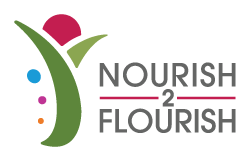My Taper Nutrition
Ahh... you've done the bulk of your training and now it's time to taper for your next race. It's easy and tempting to let things go a little since you have more time on your hands, but this is the most important time to focus on nutrition. Eating a clean diet will help your body recover from the heavy training and restore, so you are fresh and strong at the start line. Eating too many refined carbohydrates will increase inflammation and add extra weight. Both will slow you down and hamper performance. Your training volume is reduced so you will automatically store more glycogen from the carbohydrates you typically eat. Increasing your carbohydrate intake significantly or "carb loading" excessively will increase stored body fat. The body can only store 1500-2000 calories of carbohydrate as glycogen so it's not necessary to increase carbohydrate intake for a week or two.
How do I eat during the taper period? I don't change my diet much. Since I'm fat adapted, I continue to eat more fat than carbohydrate with a moderate amount of protein. I also like to track my intake the week or two before a race to ensure that I'm getting the appropriate amounts of fat, carbohydrate and protein. My average macronutrient intake for the week prior to Boulder 70.3 (percent of total calories):
60% fat
25% carbohydrate
15% protein
Below are some photos of meals I ate throughout the week. You will see high levels of vegetables as they are my primary carbohydrate source.
Breakfast - eggs cooked in pasture butter with vegetables and turmeric
Snacks - vegetables with salted avocado, along with raw nuts
Lunch - arugula with beets, chicken, cauliflower. MCT oil added after picture.
Dinner - chicken kabob with salad and grilled mushrooms
A few days before the race, I reduced the intake of raw vegetables and added in more starchy vegetables, such as sweet potatoes and squash. This increased my carbohydrate intake to 28% the day prior to the race and reduced my intake of fiber to help minimize the chance of any GI distress. Below is a picture of my dinner... may not look that beautiful, but it was a tasty meal. I added a digestive enzyme to ensure the food was passed through and added to my glycogen stores by morning.
Pre-race dinner - sweet potato with MCT oil, sheep cheese, chicken, ham, grilled mushrooms and roasted beets
How I ate my dinner... in recovery boots!
My race went well. I had a PR on the bike and placed 6th in my age group. I felt strong overall, but wasn't tapered since it was really just a training day for Ironman Boulder. It was the perfect opportunity to test my pre-race, race and recovery nutrition for the IM. Below is my recovery meal. One of my favorites, sushi!
Round 1 of sushi, along with seaweed salad
As I start my taper for Boulder Ironman, I don't anticipate any changes, with the exception that I will add in the starchy vegetables a few days earlier.







